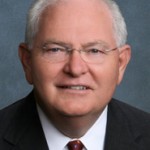
People who want to build new nursing homes or hospitals in Florida need to obtain what’s known as a “certificate of need,” basically showing a growing number of patients in the surrounding area are likely to rely on their care. A bill filed last week by state Sen. Bill Montford, D-Tallahassee, would require proposed charter schools to clear a similar hurdle.
Montford also heads the state’s association of school district superintendents, and is one of the more influential Democrats in the Republican-controlled Legislature. This bill may be a long shot, but it’s noteworthy because of the issues it represents.
Charter advocates have noted mounting pushback from school district leaders as charters enroll a growing share of the state’s public-school students.
During the 2006-07 school year, charters enrolled fewer than one in 25 public-school students. This year, they enroll nearly one in 11. While charter enrollment more than doubled during that period, enrollment in public schools, excluding charters, has been more or less flat.
SB 1038 opens with a series of editorial comments, proposing that the Legislature find, among other things, that, “The application process for new charter schools is biased toward encouraging unmitigated growth of the charter school industry, rather than focusing on the specific needs of students or the safeguarding of taxpayer dollars.” It also laments that Florida, unlike some states, does not set a hard cap on the number of charter schools allowed to open.
The bill would require potential charter school applicants, or existing charters that want to expand, to pay an application fee of at least $10,000 to request a “statement of need” from the state Department of Education, outlining the number of students they plan to enroll and the programs they plan to offer. If the department decides to award them a statement of need, other groups could still challenge the statement before it becomes official. New charters would not be able to open without a statement of need, and for new schools, operating a charter school without one would become a crime.
The ideas underscore the ways districts’ attitudes toward charters have shifted as enrollment patterns have changed.
When Florida first allowed charters in 1996, people were moving to the state in droves and children were signing up for schools faster than new classrooms could be built. Up until 2000, it was the policy of the state to encourage the creation of charter schools to help accommodate rapid growth in a cost-effective way. Districts scrambling to house new students often offered their assent. Montford, who was then superintendent of Leon County Schools, sometimes points out that he went out on a limb to support some of North Florida’s earliest charter schools during that period.
Since 2007, however, charter schools have accounted for basically all the growth in public-school enrollment, and while some districts are growing and again struggling to find money to build new schools, others are feeling the pressure as they compete with charter schools to attract scarce numbers of students.
Pro-charter school lawmakers, meanwhile, are taking a different tack this year.
The House’s charter school proposal is aimed at improving charter school quality and district oversight, though it’s not yet clear what path the Senate will take. Supporters of the House’s proposal say they are wary of adding new regulations, restricting the growth of charter schools or creating barriers to entry for smaller charter school organizations.


